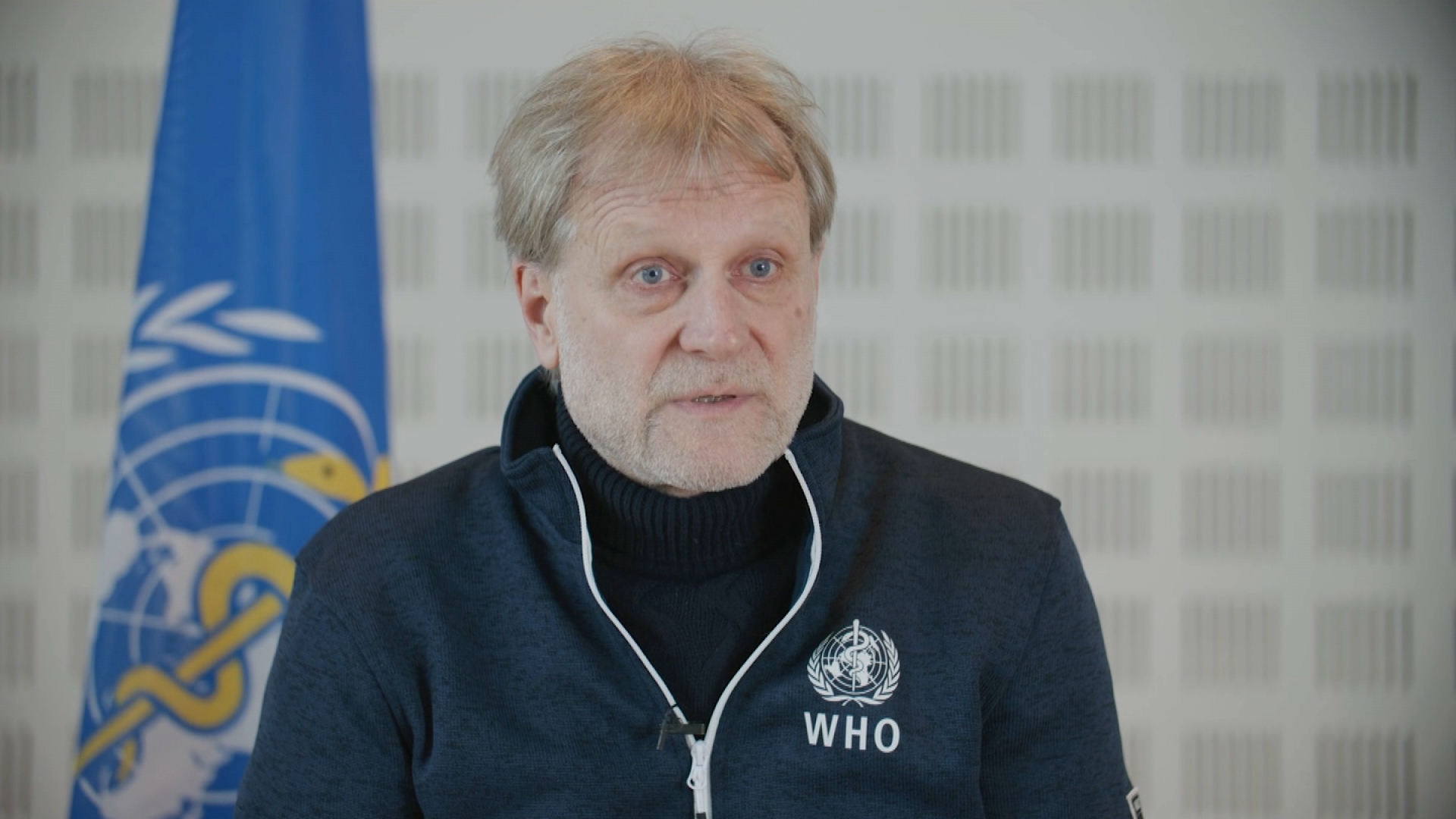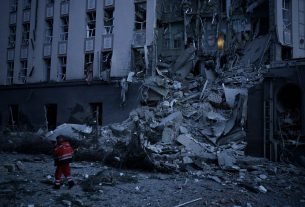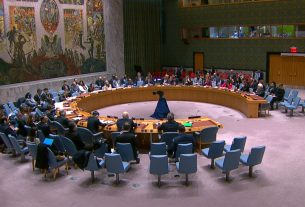TRT: 3:12
SOURCE: WHO
RESTRICTIONS: NONE
LANGUAGE: ENGLISH / NATS
DATELINE: 06 FEBRUARY 2023, COPENHAGEN, DENMARK / FILE
SHOTLIST:
RECENT – WHO
1.Close up, WHO emblem
06 FEBRUARY 2023, COPENHAGEN, DENMARK
2. Wide shot, Rockenschaub at the interview
3. SOUNDBITE (English) Dr Gerald Rockenschaub, WHO Europe’s Regional Emergency Director:
“Our main role is to coordinate very closely with the Ministry of Health, the health needs on the ground, and to respond to those health needs. At the moment, we have received requests to coordinate the deployment of emergency medical teams and of trauma supplies and trauma kits. So we are looking into that. We are also working with authorities to get a better picture on the priority needs, on the damage assessments, on the ground and coordinating very closely with our health partners to move a collective response.”
4.Wide shot, Rockenschaub at the interview
5. SOUNDBITE (English) Dr Gerald Rockenschaub, WHO Europe’s Regional Emergency Director:
“Well, at the moment, the focus is clearly on search and rescue. It is injuries that need to be treated, first aid response of communities on the ground, and then more specialized trauma care in hospitals. While we have severe weather on the ground, it’s freezing cold. It’s cold temperatures. So the risk for infectious disease, apart from the immediate risk for trauma and the injuries is definitely increasing as we go along. Also, some of the critical supply lines, water and sanitation will be compromised. Infectious diseases is certainly a big risk. Then also the risk for mental health and psychosocial support that is required to be addressed. There is a massive, obviously psychological trauma apart from the physical trauma that needs to be addressed.”
6. Wide shot, Rockenschaub at the interview
7. SOUNDBITE (English) Dr Gerald Rockenschaub, WHO Europe’s Regional Emergency Director:
“Well, particularly in those vulnerable population groups, we see a high level of mental stress, of psychosocial support needs. We also see, obviously, trauma needs, but then also those people are in risk of infectious diseases. So we need to strengthen the early warning systems to prevent outbreaks and to respond to infectious disease risks, more consolidated, concentrated.”
8. Wide shot, Rockenschaub at the interview
9. SOUNDBITE (English) Dr Gerald Rockenschaub, WHO Europe’s Regional Emergency Director:
“Well, Türkiye has massive capacities and massive experience, they have the UN teams that have embedded medical capacities in search and rescue. We also have worked with Turkish authorities to improve earthquake resilience of hospitals to ensure that hospitals remain functional after such shocks and earthquakes, and to jointly do trainings and capacity building and also to share Turkish experience with other countries. But now Turkey needs the solidarity of other countries to address the massive challenges of this big disaster.”
10. Wide shot, Rockenschaub at the interview
11. SOUNDBITE (English) Dr Gerald Rockenschaub, WHO Europe’s Regional Emergency Director:
“Well, at the moment, we are looking primarily at a trauma kits, that is surgical kits to help with surgical interventions to address the injuries we are mobilizing medicines. What we also often see is then chronic disease medications might be in short supply and we are also mobilizing experts to help with addressing early warning and surveillance systems and to coordinate the broader response of the health partners on the ground.”
12. Wide shot, Rockenschaub at the interview
STORYLINE:
In the wake of the devastating earthquakes that struck the south-eastern region of Türkiye, near the border with Syria, the WHO Regional Office for Europe extends its deepest condolences and is poised and ready to support the Turkish Ministry of Health, including through the WHO Country Office in Türkiye and in collaboration with WHO Headquarters, with the humanitarian emergency response.
The epicentre of the initial quake was close to the Turkish city of Gaziantep, where WHO has a field office primarily supporting WHO’s humanitarian operations in northwest Syria, and now operating as the Organization’s response hub for this crisis too. News outlets are reporting that over 1,500 people have been killed in Türkiye alone, with the toll likely to mount as rescue efforts intensify and more information becomes available.
Tha Syrian Arab Republic is a Member State of the WHO Eastern Mediterranean Regional Office (EMRO), which is offering its support to parts of northern and northwestern Syria that have also been heavily affected by the natural disaster. Both WHO/Europe and WHO/EMRO are working together with WHO Headquarters to address critical health needs stemming from the crisis.
WHO’s classified emergency medical teams initiative has been activated to provide essential health care for the injured and most vulnerable affected by the disaster, in response to a request for international assistance. National authorities are focusing on search and rescue in the immediate aftermath of the earthquakes, while anticipating increased need for trauma care to treat the injured. Also, the wider health system will need to be supported in affected areas including where health facilities may have been damaged.
WHO/Europe will continue to provide updates on the support provided to Türkiye, and the health needs being addressed amid the response, as the situation evolves.



